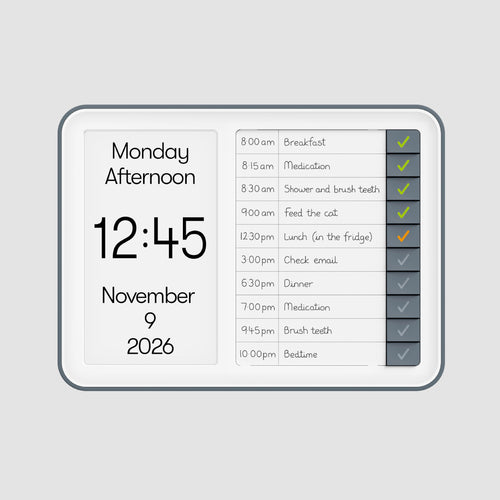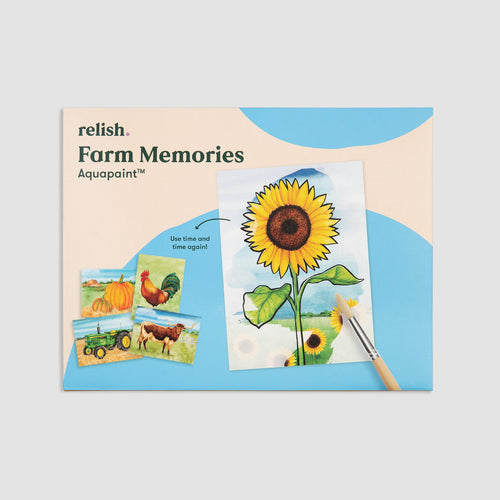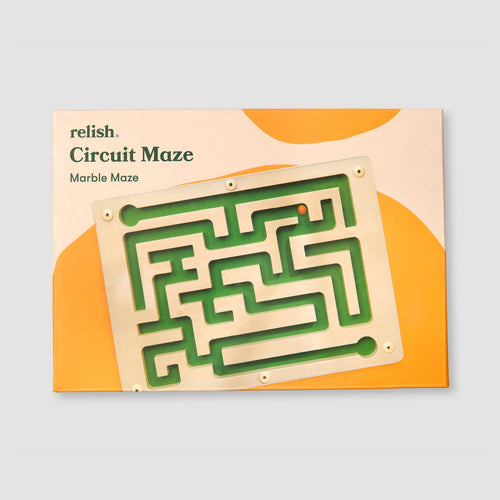As people progress along their dementia journey, it is possible they may become withdrawn from taking part in activities and socialising with family and friends; it is extremely important however, to maintain hobbies and activities to ensure a higher quality of life and maintain wellbeing. A variety of activities are great for those living with dementia as they provide a way to keep the brain active and engaged.
The longer a skill or ability is in use, the longer it tends to be retained, and in addition to this, activities can provide a multitude of benefits such as reducing stress, improving brain function, sparking conversations and memories along with and improving or maintaining mobility. Here we will discuss some activities which are ideal for those living with dementia.
1. Arts and Crafts
There are a range of arts and crafts activities which are great for those living with dementia. Creative activities are visually stimulating and especially beneficial for those who enjoy artistic hobbies. Art based activities can provide a sense of accomplishment especially as they take some time to complete and there can be a finished item to admire .
Colouring and Painting
Colouring and painting offer the opportunity to engage with different mediums such as oil paints, chalks and pastels. Activities such as these have been shown to stimulate and relax those living with dementia. It is important that tasks are appropriate for the person’s ability so as not to cause frustration, however with the right care and attention they can be engaging and stress reducing.
Flower Arranging
Creating floral arrangements is a great way to spend time with a person living with dementia. It is a sensory and stimulating activity which allows them to explore their creativity and the beautiful end result provides a great sense of achievement. Using real flower will help to provide more sensory stimulation whereas artificial flowers are generally easier to handle and work with.
2. Reminiscence Activities
There are a range of activities which are shown to help those living with dementia reminisce about the past. They can involve certain tasks or activities which have the ability to evoke memories. These types of activities are great for a number of reasons, including having the ability to spark conversations but they also producet a lot of happiness and comfort when memories are sparked.
Scrapbooking and Memory Boxes
Scrapbooking or making a memory box involves looking through old photographs and allows those living with dementia to stay connected to the past. The process of making the book or box can be incredibly soothing and comforting in itself and when done in a group can allow people to open up about their memories which these photos or items may have sparked; choosing images which mean something to the person is brilliant as the book can be looked through in the future to be reused time and again as part of reminiscence activities.
Films
Watching an old film is a great way to encourage a conversation about someone’s past; choosing era specific films is generally the best way to do this. Try to choose a film you know the person enjoys and has seen before; you can then start conversations around the actors, or the music and it may spark memories.
Music
In a similar way to films, music is really powerful when it comes to evoking memories, emotions and conversations. The auditory system is one of the first to develop when we are babies and is often closely linked to memories, such as the sound of the ocean which could be reminiscent of a childhood holiday, or a favourite song which could evoke memories of a dance or wedding. Music can be extremely useful in reminiscing and really powerful when it comes to igniting happy emotions.
3. Gardening
Gardening offers a great deal of sensory stimulation and being outdoors, interacting with nature, can be extremely relaxing. Having a personal space in the garden, where the person can plant their own flowers is a great way to give them a sense of ownership and accomplishment from taking care of their own little space.
Gardening provides a connection to nature through the changing sounds, smells and sights seen in the garden. This in turn can be extremely relaxing and help improve mood.
4. Cooking or Baking
As with most of the other activities mentioned, cooking and baking is great as it is a very sensory experience. It is especially good for those who have always enjoyed making food; whilst some kitchen activities may not be suitable there are a range of things to get involved in. Some activities such as kneading dough or stirring batter can be extremely relaxing as well as fun.
When all is done, the food can be enjoyed and there will be a great sense of accomplishment having created something which can be enjoyed by everyone. Baking or cooking meals which hold memories can also be a great way to reminisce.
In general, activities which are best for those living with dementia should be calming and mood boosting. Avoid anything too strenuous or anything which has the potential to cause frustration or confusion. Instead look to incorporate activities which have a reminiscent or sensory benefit as these tend to be comforting and engaging and take part in activities in which the person enjoys.






















